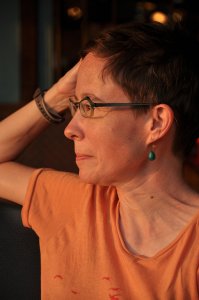Presented By: Center for Emerging Democracies
WCED Lecture. Impunity as State Formation: Dictatorship and the Future of Justice in Thailand
Tyrell Haberkorn, associate professor of Southeast Asian studies, University of Wisconsin-Madison

The regime of the National Council for Peace and Order (NCPO), which took power in Thailand in the 22 May 2014 coup, is a dictatorship that has been marked by series of human rights violations including curtailment of freedom of expression, torture, arbitrary detention and unjust prosecutions which depart from the letter and spirit of the law. Four years after the coup, General Prayuth Chan-ocha and the NCPO have gestured towards a willingness to hold elections, albeit under circumstances highly-constrained by the 2017 Constitution. Taking an assumption that part of the NCPO’s reluctance to exit power is their realization of their many violations of the very law they claim to enforce, this lecture outlines how and on what charges General Prayuth Chan-ocha and other members of the NCPO could be indicted and prosecuted under domestic criminal law and with respect to Thailand’s international human rights violations. Reflecting on such a possible prosecution within the context of Thai and global histories of human rights and impunity, Haberkorn also explicates both the urgency of justice and potential obstacles to it.
Tyrell Haberkorn is an associate professor of Southeast Asian studies in the Department of Asian Languages and Cultures at the University of Wisconsin-Madison. Her work is primarily focused on state violence and dissident cultural politics in Thailand. She is the author of "Revolution Interrupted: Farmers, Students, Law and Violence in Northern Thailand" (University of Wisconsin Press, 2011), which rethinks the meaning of revolution in terms of legal rather than armed struggle, and "In Plain Sight: Impunity and Human Rights in Thailand" (University of Wisconsin Press, 2018), a new history of post-absolutist Thailand written through the lens of impunity. Tyrell also writes and translates frequently about Southeast Asia for a broad, public audience, including "Dissent," "Foreign Affairs," "Los Angeles Review of Books," "openDemocracy," and "Prachatai." Her work has been funded by fellowships from Fulbright, the Australian Research Council, the Association for Asian Studies, the Radcliffe Institute, and the Einstein Forum. She can be reached via email at tyrell.haberkorn@wisc.edu.
If you are a person with a disability who requires an accommodation to attend this event, please reach out to weisercenter@umich.edu at least 2 weeks in advance of this event. Please be aware that advance notice is necessary as some accommodations may require more time for the university to arrange.
Tyrell Haberkorn is an associate professor of Southeast Asian studies in the Department of Asian Languages and Cultures at the University of Wisconsin-Madison. Her work is primarily focused on state violence and dissident cultural politics in Thailand. She is the author of "Revolution Interrupted: Farmers, Students, Law and Violence in Northern Thailand" (University of Wisconsin Press, 2011), which rethinks the meaning of revolution in terms of legal rather than armed struggle, and "In Plain Sight: Impunity and Human Rights in Thailand" (University of Wisconsin Press, 2018), a new history of post-absolutist Thailand written through the lens of impunity. Tyrell also writes and translates frequently about Southeast Asia for a broad, public audience, including "Dissent," "Foreign Affairs," "Los Angeles Review of Books," "openDemocracy," and "Prachatai." Her work has been funded by fellowships from Fulbright, the Australian Research Council, the Association for Asian Studies, the Radcliffe Institute, and the Einstein Forum. She can be reached via email at tyrell.haberkorn@wisc.edu.
If you are a person with a disability who requires an accommodation to attend this event, please reach out to weisercenter@umich.edu at least 2 weeks in advance of this event. Please be aware that advance notice is necessary as some accommodations may require more time for the university to arrange.